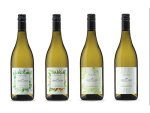New tariffs imposed by President Donald Trump signal an uncertain future, but New Zealand farmers know how to adapt to changing conditions, says Auriga Martin, chief executive of Farm Focus.
Martin, whose company provides financial management tool for farmers, believes many farmers will be concerned about the impact of the tariffs.
However, she points out that farmers who are aware of their margins can make the necessary adjustments to weather the storm.
“While it’s difficult to plan for an uncertain future farmers know how to adapt to changing conditions and this will be no different,” says Martin.
“Farmers are inherently good at adapting, running lean, managing costs or diversifying income on their farm. They know that building resilience as a business is important regardless of what the disruptors are.
“And with the US imposing significant tariffs globally, Kiwi farmers may find themselves well positioned to adapt to the changing export market.”
As part of his ‘Liberation Day’ announcements President Trump slapped baseline tariffs of about 10% on US imports.
He will also be imposing reciprocal tariffs on countries that have treated the US unfairly in terms of tariff and non-tariff barriers. 10% tariffs will be imposed on NZ and Australian goods exports to the US, whereas much higher US tariffs will be imposed on major export markets, including China, Japan, the European Union and much of the rapidly growing Asia-Pacific region. The US is NZ’s 3rd largest goods export market ($9bn annually), being a key destination for NZ exports of meat, dairy and wine as well as selected non-commodity exports.



















